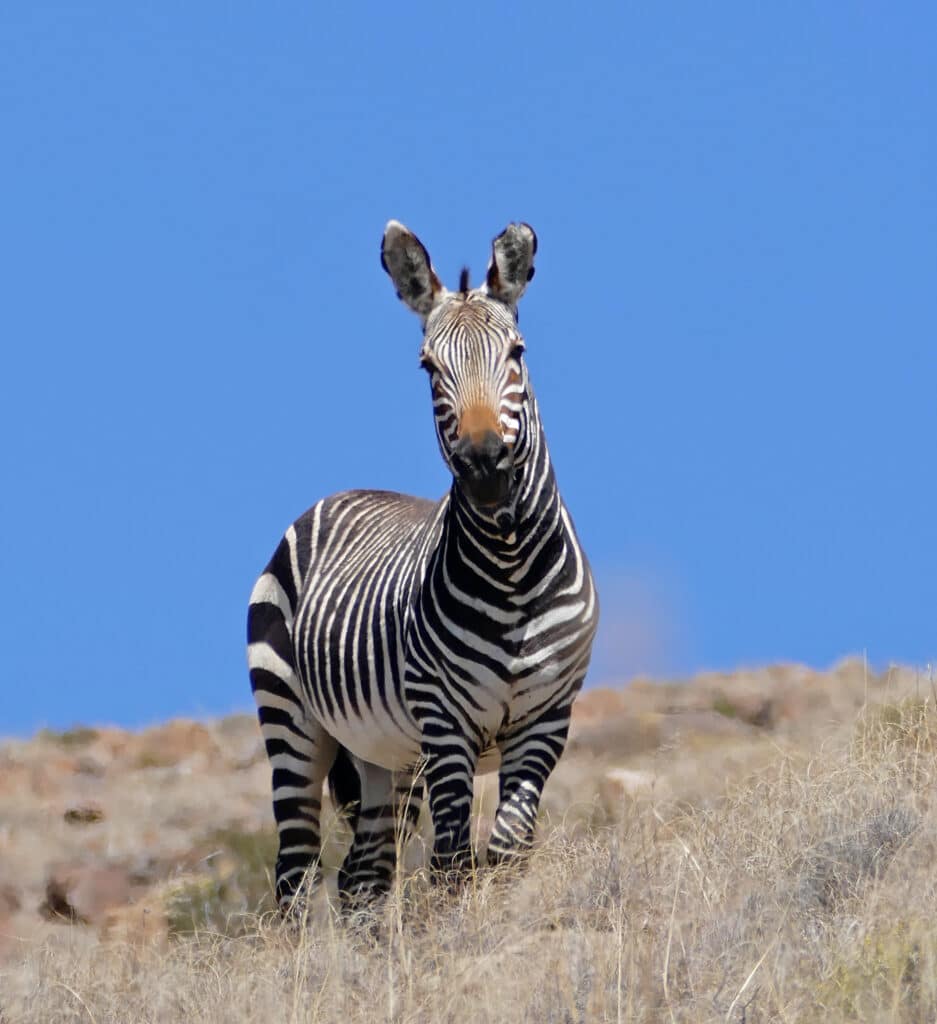A Beacon of Hope for Conservation
The birth of a unique Cape Mountain Zebra foal at Sanbona Wildlife Reserve marks a significant milestone in the conservation of this species. Over the past 300 years, the Cape Mountain Zebra population has suffered due to hunting and habitat destruction, leading to the isolation and genetic distinctness of the three remaining small populations. This birth represents a successful effort in genetic rescue, combining different genetic stocks to enhance diversity and strengthen the species.
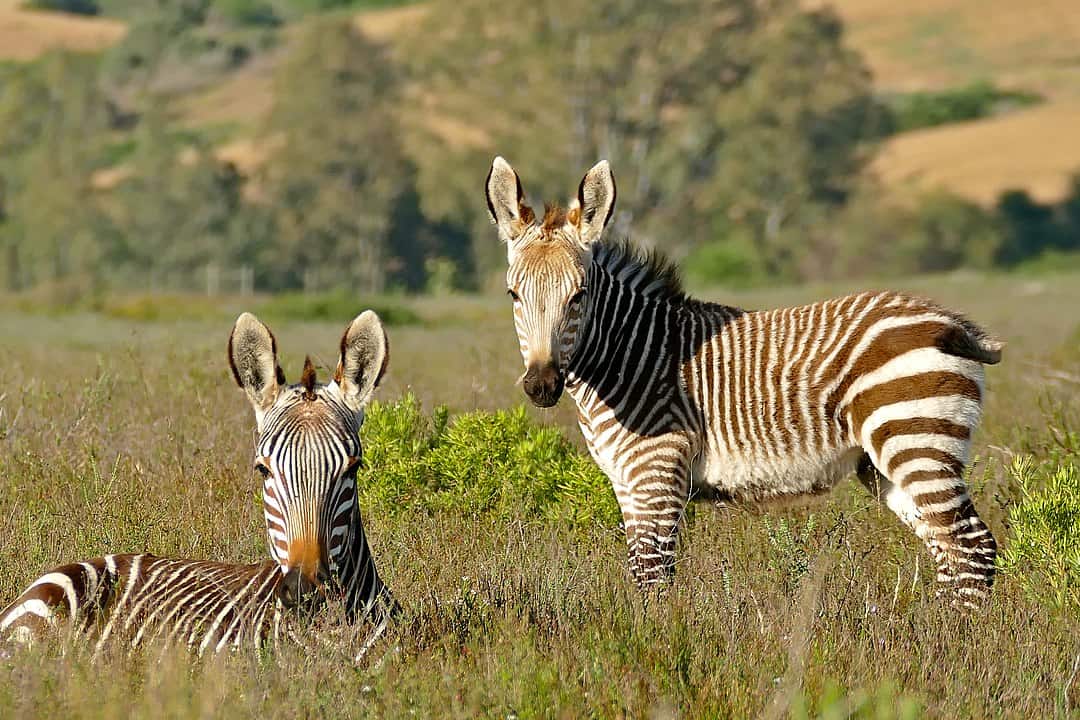
The Genetic Rescue Project
CapeNature and Sanbona Wildlife Reserve, in collaboration with experts from SANBI and the University of Venda, developed a genetic rescue plan to address the inbreeding and genetic isolation issues. Sanbona was chosen as the project site with its large and diverse Cape Mountain Zebra population. The introduction of stallions from Gamkaberg Nature Reserve to Sanbona and their successful breeding with mares of different genetic stocks has led to the birth of the world’s only Cape Mountain Zebra foal with both Cradock and Gamkaberg genes.
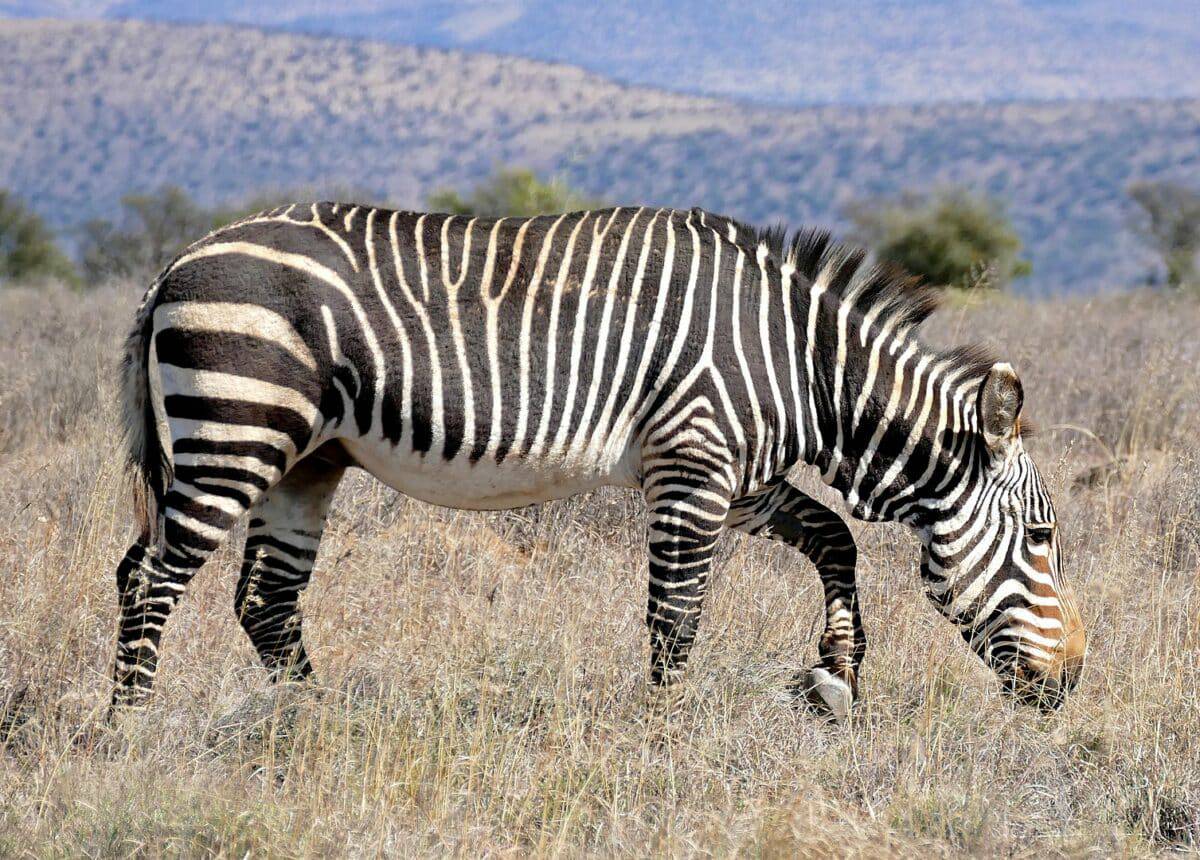
Future Prospects
The project aims to create a union that combines all three genetic stocks, further restoring the lost genetic diversity of the species. The success of this initiative is a crucial step in ensuring the long-term survival and health of the population.
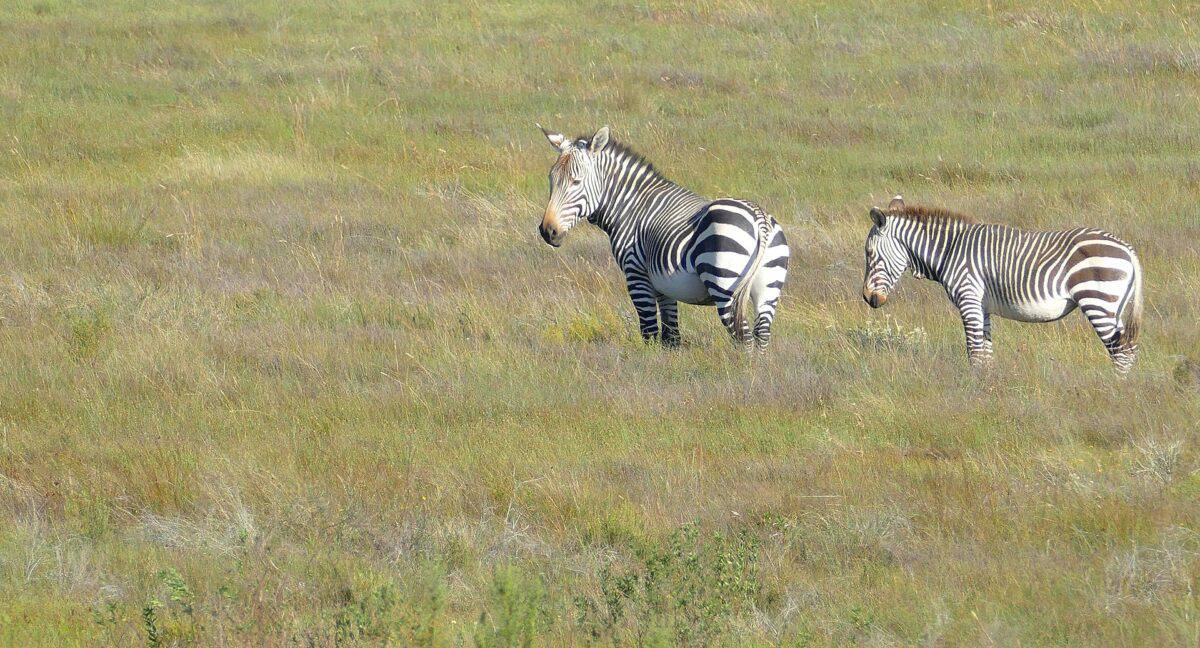
Cape Mountain Zebra: Key Facts
- Scientific Classification: The Cape Mountain Zebra (Equus zebra zebra) is a subspecies of the mountain zebra (Equus zebra).
- Physical Characteristics: Smallest of all zebra species, with distinctive black and white stripes, long ears, and a larger dewlap.
- Habitat: Found in mountainous regions of Western and Eastern Cape provinces of South Africa, up to 2000m above sea level.
- Diet: Primarily grasses, with a preference for greener leafy plants. They are selective feeders and avoid coarse grasses.
- Social Structure: Non-territorial, forming small breeding and bachelor groups. Breeding herds consist of a stallion, mares, and their foals.
- Reproduction: Breeding occurs year-round, with peaks in summer. Gestation lasts about one year, and foals are weaned after 10 months.
- Conservation Status: Classified as Vulnerable by the IUCN due to a small and restricted population. Conservation efforts have led to a significant increase in numbers.
- Threats: Habitat destruction, hunting, competition with livestock, and low genetic diversity.
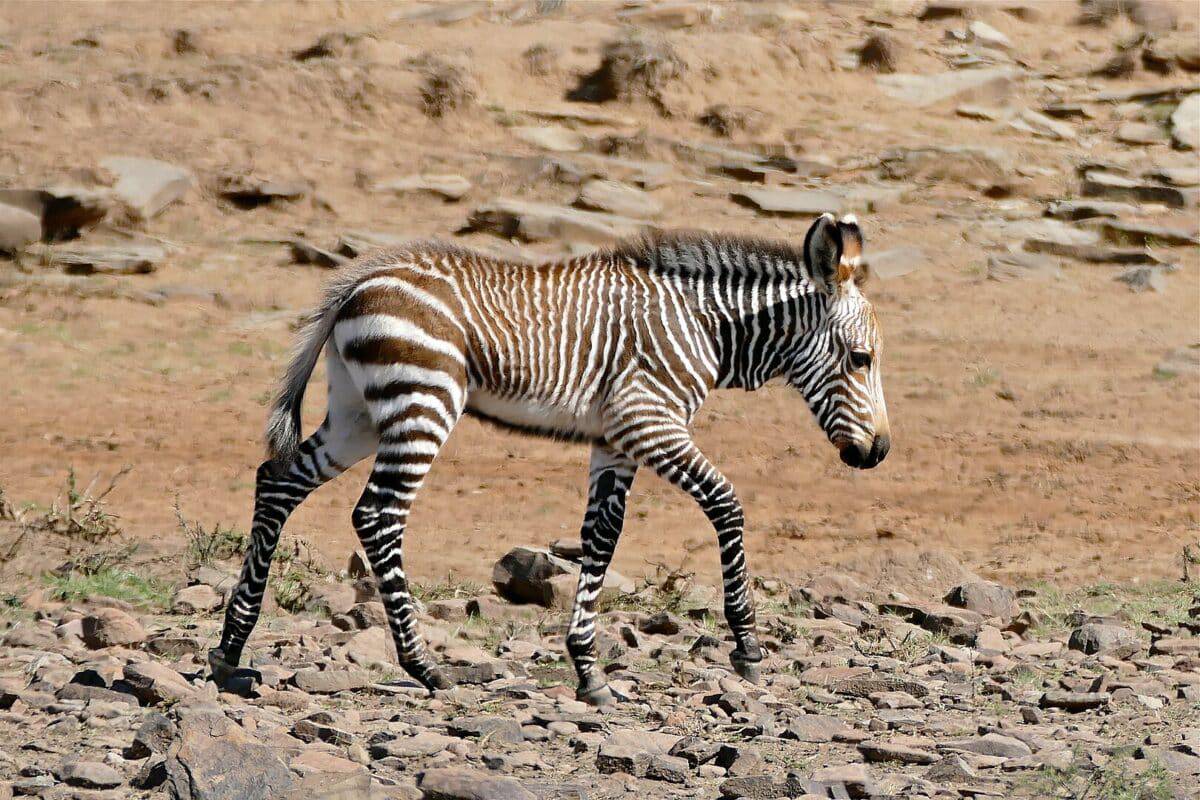
Hope for the future
The Cape Mountain Zebra is a testament to successful conservation efforts, having rebounded from near extinction to a growing population. However, challenges such as limited genetic diversity still pose a threat to their long-term survival. The birth of the unique foal at Sanbona Wildlife Reserve is a hopeful sign for the future of this remarkable species.
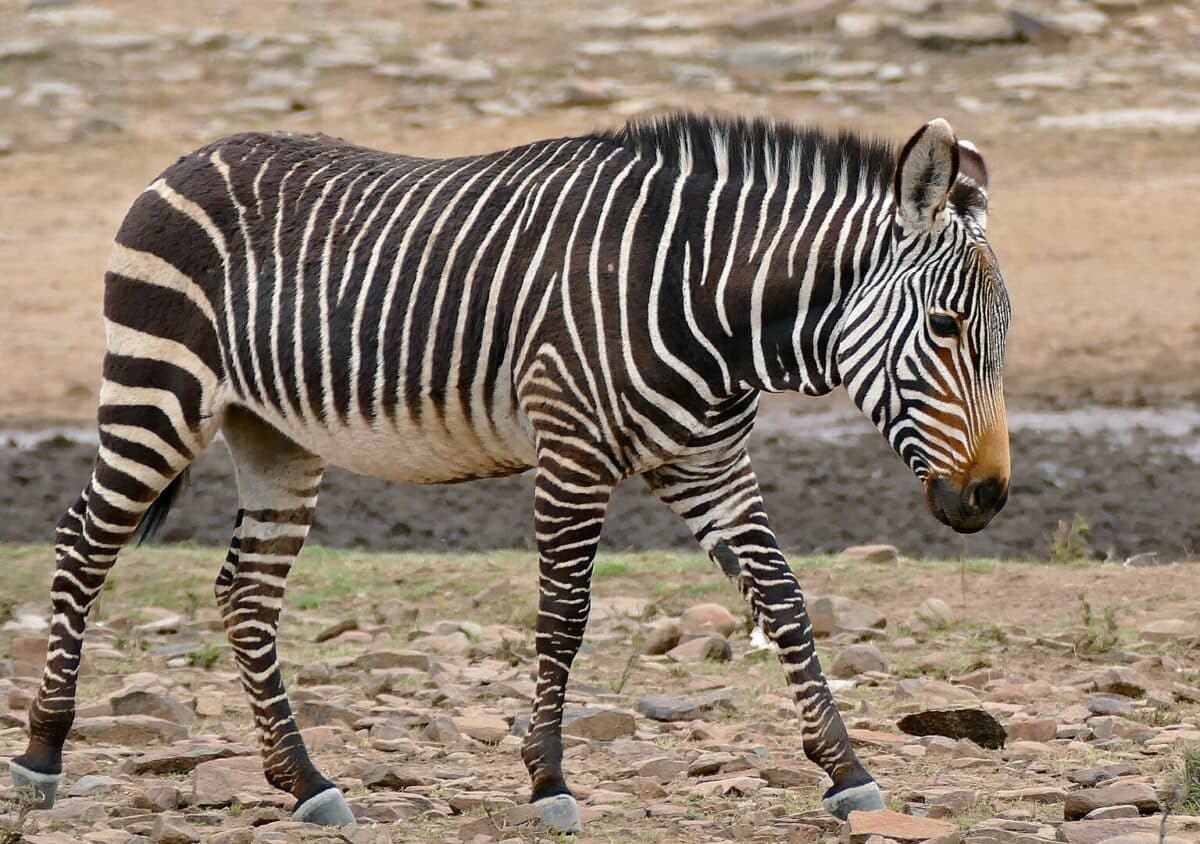
You might also enjoy:
- Watch: Lion Attacks Hyena Right In Front of Safari Vehicle
- Bodybuilder Plays Tug of War with Mighty Lion
- Watch: Maasai Warrior Chases Huge Lion for Eating His Cow
Join our Forum for free today!

- The Bond Between a Wild Baby Bison and Her Rescuer - July 20, 2024
- An Excited Husky’s First Ever Time in Snow - July 20, 2024
- Top 20 Colorful Species To Brighten Your Day - July 14, 2024

